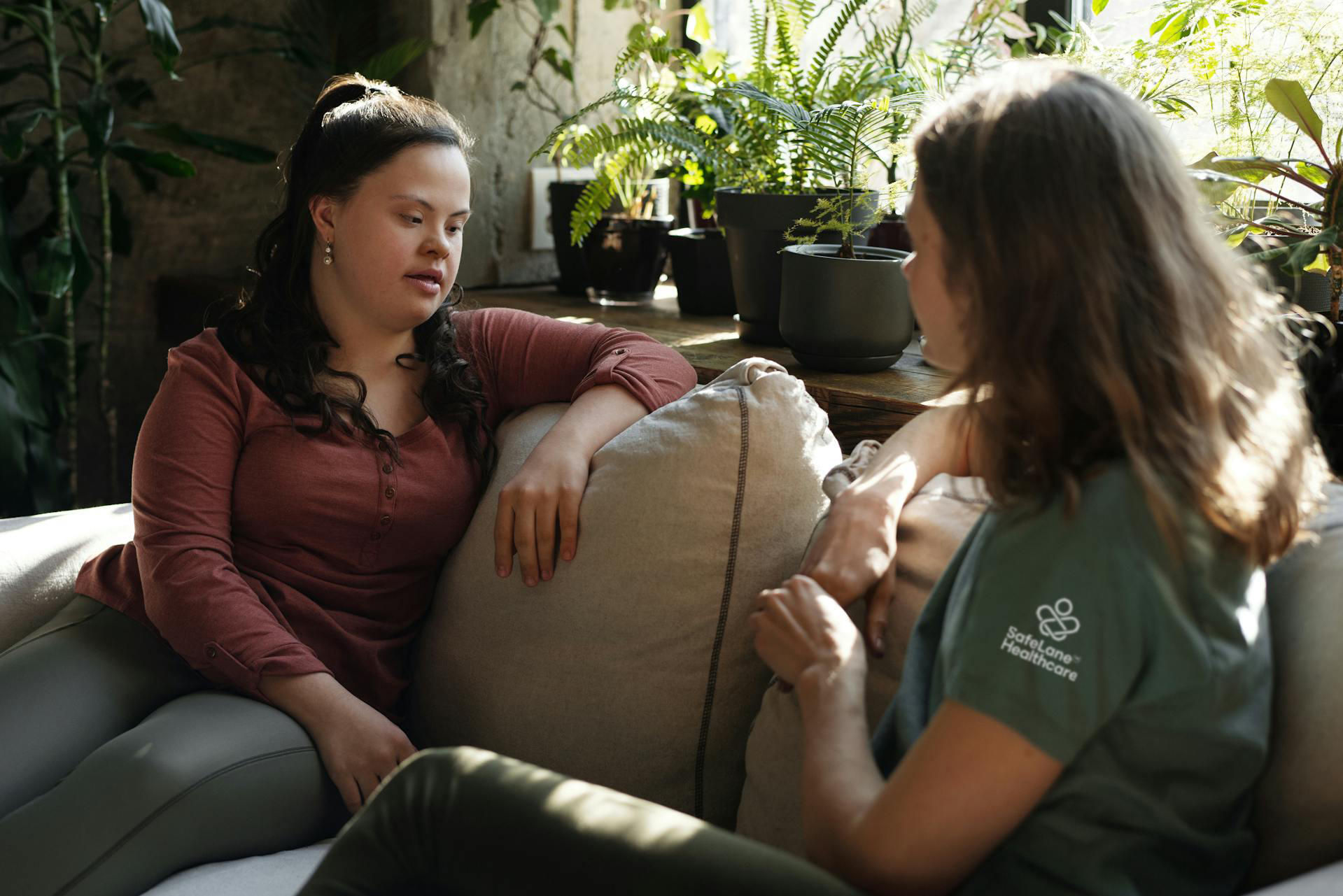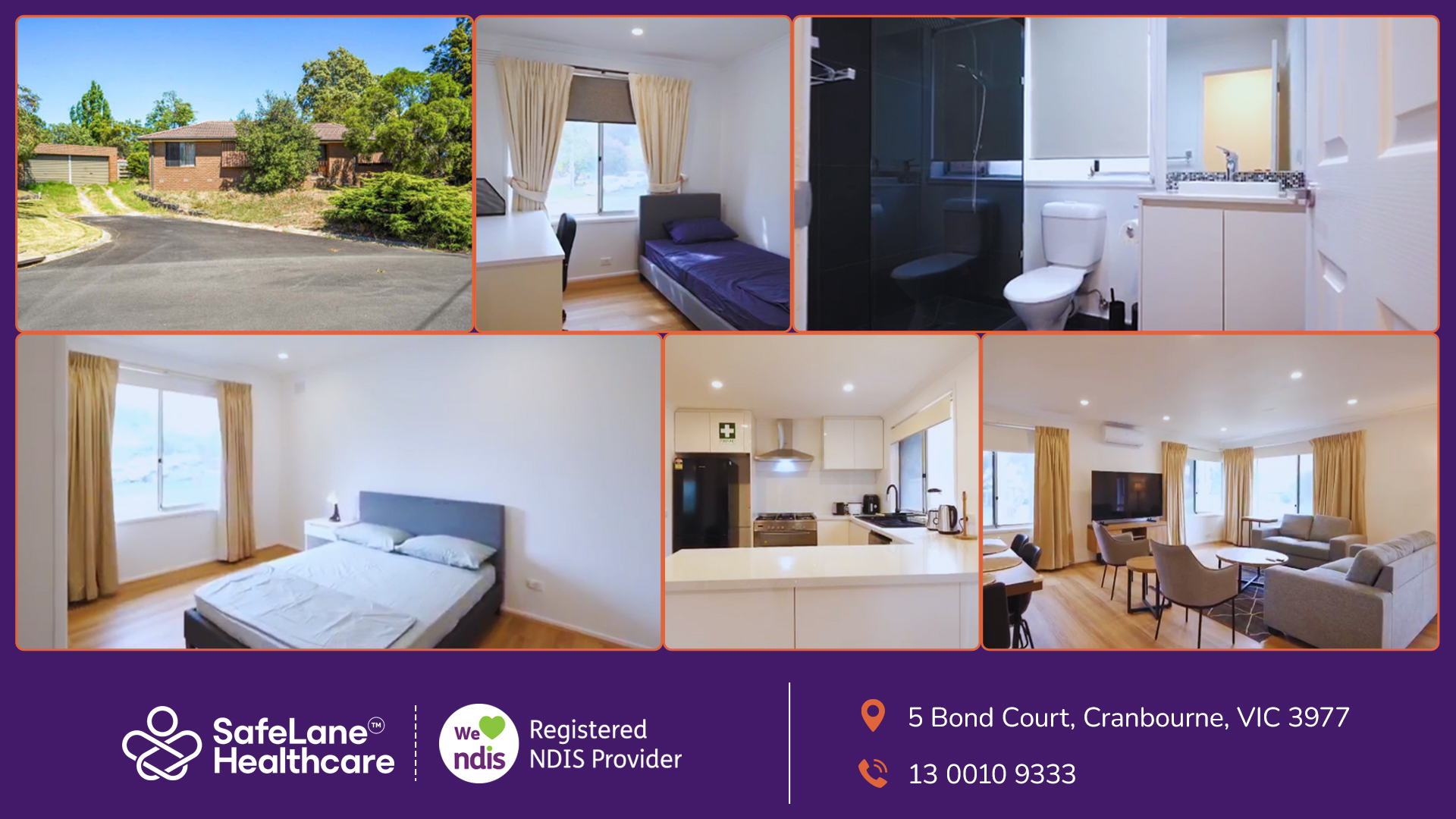
Supported Independent Living (SIL) provides individuals with disabilities the assistance they need to live full, rewarding lives. Individuals can build a strong foundation for independence with the right support for daily tasks and carefully chosen SIL accommodation.
Selecting an SIL house in Melbourne is a significant decision and deserves careful consideration. Whether you are making this choice for yourself or a loved one, the process can sometimes feel overwhelming.
From assessing support requirements and budgeting to choosing the ideal location, there are many factors to consider. But what if the process could be made simpler? We’re here to help!
Follow these 10 essential steps to find the perfect SIL accommodation tailored to your unique needs and goals.
10 Important Steps to Choose the Right SIL Accommodation
1. Understand Your Support Needs
Before diving into the search for SIL Accommodation, take the time to thoroughly assess your specific needs and preferences. This self-assessment is crucial to finding accommodation that aligns with your goals and supports your independence. Key considerations include:
- Daily Living Tasks: Identify whether assistance is needed for essential activities like meal preparation, showering, dressing, or medication management.
- Medical Requirements: Consider any ongoing medical needs or conditions that require specific attention from the SIL provider.
- Level of Independence: Determine the balance between the level of support required and the participant’s desire for independence and personal growth.
- Social Preferences: Think about whether the participant thrives in a shared living environment or prefers a quieter, more private space.
- Cultural Sensitivity: If cultural values or linguistic needs are significant, look for accommodations that promote inclusivity and respect for diverse backgrounds.
Understanding these needs provides a strong foundation for evaluating potential options.
2. Consult Your NDIS Support Coordinator
An NDIS Support Coordinator plays a pivotal role in guiding you through the process of selecting SIL Accommodation. Their expertise helps you navigate the complexities of your NDIS plan, ensuring you get the most out of your funding. They can assist with:
- Understanding Your Plan: Your Support Coordinator can explain the details of your NDIS budget, including eligible services and how to access them.
- Budget Management: They can help monitor your spending to ensure it aligns with your personal goals and adjust the plan if your needs change.
- Building Independence: A skilled Support Coordinator can empower you with the tools to eventually manage your NDIS plan independently.
Their guidance ensures you make informed decisions throughout the process.

3. Research SIL Accommodation Options
Finding the right SIL Accommodation requires thorough research to ensure the provider can meet your specific needs. Focus on:
- NDIS Registration: Confirm the accommodation is registered with the NDIS to ensure eligibility for funding.
- Services Offered: Evaluate whether the accommodation provides support that aligns with your goals, such as assistance with daily tasks, behavioural support, or skill development programs.
- Expertise and Track Record: Look for providers experienced in supporting participants with similar needs. For instance, some may specialise in psychosocial disabilities, while others cater to physical disabilities.
- Tailored Services: Ensure they offer flexible, customisable support designed to meet your unique requirements.
- Alignment with Goals: Confirm the provider’s focus matches your objectives, whether it’s fostering independence, enhancing community participation, or developing specific life skills.
- Cultural Sensitivity: Look for signs of inclusivity and respect for diverse values on their website or social media.
Conducting a comprehensive review will help narrow down your options to those most likely to suit your needs.
4. Evaluate Location and Housing Options
The location and type of SIL Accommodation play a vital role in your overall satisfaction and quality of life. When reviewing options:
- Housing Types: Check for accommodations that suit your preferences, such as share-houses, sole-occupancy homes, or family-friendly settings.
- Proximity to Key Places: Consider how close the accommodation is to family, friends, work, community groups, or medical facilities you visit frequently.
- Public Transport Access: Ensure easy access to buses, trains, or other transport options that support travel and social activities.
Choosing an accommodation that aligns with your lifestyle and logistical needs ensures comfort and convenience.
Searching for an SIL House in Cranbourne, VIC, Located in the SouthEast of Melbourne?
Change Your Life with Our Supported Independent Living (SIL House) in Cranbourne, VIC!
Experience the freedom of living independently with round-the-clock support at our SIL House in Cranbourne, Melbourne, Victoria. We offer a safe and comfortable environment where you can gradually develop the skills to live on your terms while receiving the necessary assistance for everyday tasks. For more information and to make a booking, please visit https://safelane.com.au/sil-housing/ or call us now at 1300 10 9333.
5. Meet the Provider’s Team
Connecting with the team behind the SIL Accommodation is essential to understanding the quality of support they offer. During your meeting, assess:
- Staff Qualifications and Training: Inquire about staff experience, qualifications, and any specialised training they undergo for complex needs.
- Support Availability: Confirm the extent of 24/7 support, ensuring it covers any potential needs, especially if you have complex health or behavioural requirements.
- Communication Style: Pay attention to how they listen and address your concerns. Their communication approach is a good indicator of how they will interact with you daily.
- Person-Centred Approach: Ensure the team values individual goals, strengths, and preferences, focusing on empowerment and independence.
A supportive and competent team is critical to a successful SIL experience.
6. Visit the Accommodation
Touring the SIL Accommodation allows you to see firsthand if it meets your expectations. During your visit, evaluate:
- Accessibility Features: Check for modifications like ramps, grab bars, or wide doorways that cater to mobility needs.
- Safety Measures: Look for smoke detectors, fire extinguishers, and secure environments that ensure safety and peace of mind.
- Comfort and Maintenance: Assess whether the space is clean, well-maintained, and has a welcoming, home-like feel.
Observing the environment in person can provide clarity that isn’t always apparent from brochures or online descriptions.
7. Speak with Current Residents
Gaining insights from those already living in the SIL Accommodation can offer invaluable perspectives. Ask questions such as:
- Are their needs being met effectively?
- Do they feel safe, respected, and supported?
- Are staff approachable, professional, and responsive?
- Do residents feel involved in shaping their daily routines?
If direct contact isn’t possible, look for online reviews on platforms like TrustPilot or Google Reviews for third-party feedback.

8. Assess Experience and Compliance
A strong track record and adherence to standards are vital for quality assurance. Look for:
- Years of Experience: Providers with a longer history often demonstrate stability and reliability.
- Testimonials and Success Stories: Check for positive client feedback and examples of successful outcomes.
- Compliance with Standards: Verify adherence to NDIS Quality and Safeguards Standards, as well as results from recent independent audits.
These factors reflect the provider’s commitment to delivering high-quality services.
9. Review Pricing and Transparency
Understanding the financial aspects of your SIL Accommodation is crucial to avoiding surprises. Make sure:
- Fee Transparency: Providers clearly outline costs, including those covered by your NDIS funding and any additional expenses.
- Support from Experts: Seek advice from your Support Coordinator, Plan Manager, or Local Area Coordinator if you’re unsure about pricing details.
Transparent pricing ensures you can plan your budget effectively.
10. Final Evaluation
Before making a decision, compile all the information you’ve gathered and evaluate how well each option aligns with your needs, goals, and preferences. Consider:
- Alignment with Objectives: Does the provider’s approach match your personal and NDIS goals?
- Quality of Support: Are staff experienced, empathetic, and equipped to handle your unique requirements?
- Living Environment: Does the accommodation feel like a home, with the right level of comfort and care?
Final Words
Choosing the right Supported Independent Living (SIL) accommodation is a critical step towards achieving independence and living a fulfilling life. By carefully considering your support needs, consulting with a Support Coordinator, and evaluating factors such as location, housing type, and provider expertise, you can make an informed decision that suits your unique goals. It’s essential to visit the accommodation, speak with current residents, and ensure the provider meets all necessary standards. With the right guidance and thorough research, you can find the SIL accommodation that best supports your independence and well-being, leading to a rewarding and empowered life.
Looking for a SIL House in Cranbourne, VIC, in Melbourne’s Southeast? Enjoy independent living with 24/7 support at our Cranbourne SIL House. Build your skills in a safe, comfortable environment while receiving the help you need for daily tasks. Learn more or book now: https://safelane.com.au/sil-housing/ or call 1300 10 9333.
Frequently Asked Questions
Subscribe Our Newsletter
Join our newsletter for community updates and resources.


